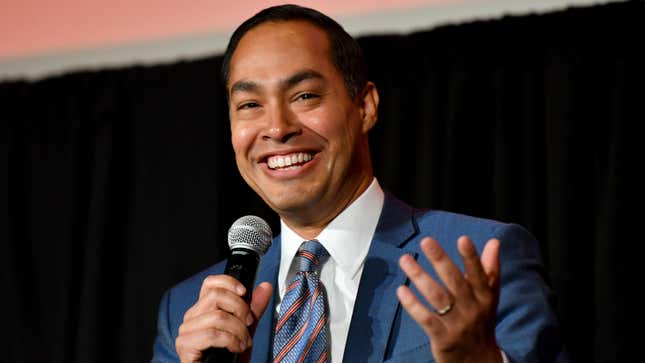Julián Castro Ended His Campaign, But His Questions About Race and the Party's Future Endure
NewsPolitics

Julián Castro announced the end of his yearlong presidential campaign Thursday, citing “circumstances of this campaign season.”
“I’m so proud of the campaign we’ve run together,” Castro said in a final campaign video uploaded to his Twitter account. “We’ve shaped the conversation on so many important issues in this race, stood up for the most vulnerable people, and given a voice to those who are often forgotten. But with only a month until the Iowa caucuses, and given the circumstances of this campaign season, I’ve determined that it simply isn’t our time.”
-

-

-

-

-

-

-

-

-

-

-

-

-

-

-

-

-

-

-

-

-

-

-

-

-

-

-

-

-

-

-

-

-

-

-

-

-

-

-

-








































